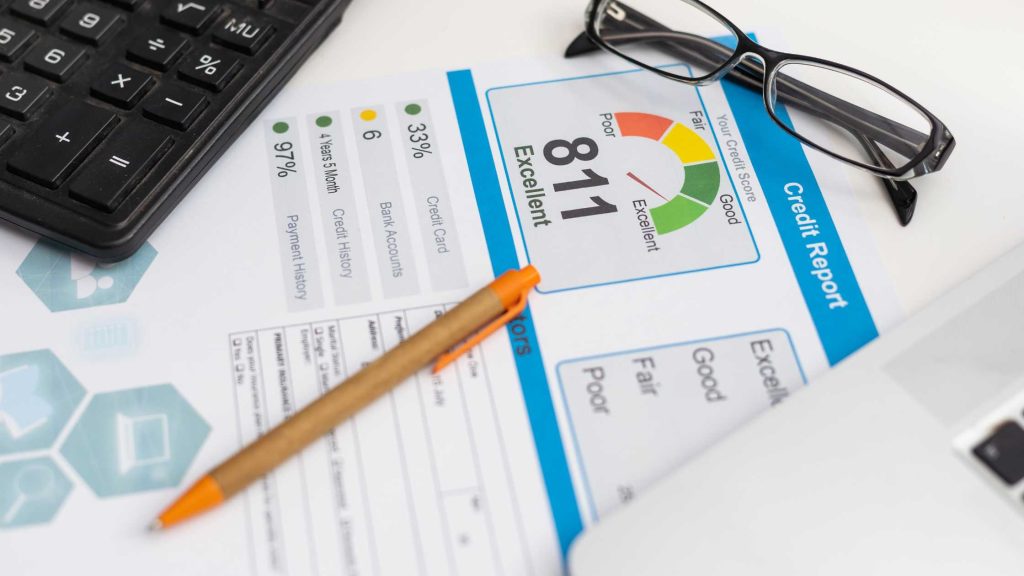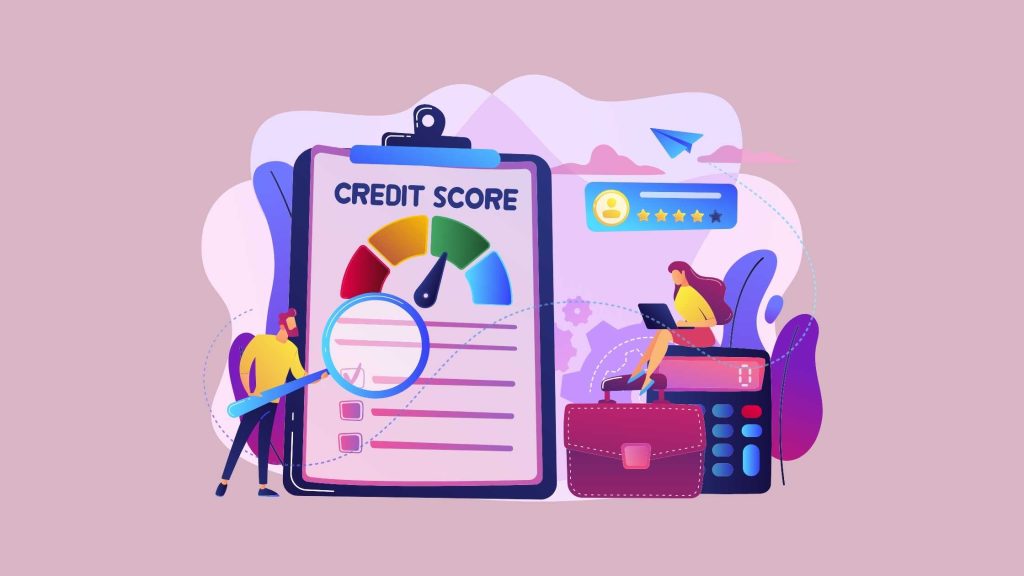Importance of Credit History in Loan Approval : Comprehensive Guide 2025
Importance of Credit History : In the world of modern finance, your credit history is like your financial fingerprint. Whether you’re applying for a personal loan, a home loan, a business loan, or even a credit card, lenders need to evaluate your ability to repay debt before approving your request. In 2025, this evaluation is more precise, data-driven, and comprehensive than ever. One of the most critical factors in this decision-making process is your credit history.
Table of Contents
This comprehensive guide explores the importance of credit history in loan approval, how it influences lending decisions, how to improve it, and how it fits into India’s evolving digital financial landscape.
📌 What is Credit History?

Credit history is a record of a borrower’s ability to repay debts and demonstrated responsibility in repaying them. It includes information like:
- Past and current loan accounts
- Credit card usage
- Repayment behavior (on-time or delayed)
- Defaults, settlements, or write-offs
- Credit inquiries and applications
Also Read : What Happens If You Default on a Personal Loan ?
In India, this history is maintained and tracked by credit bureaus like CIBIL (TransUnion), Experian, Equifax, and CRIF High Mark.
🔍 What is a Credit Score?
Your credit score is a three-digit number (ranging from 300 to 900) that summarizes your credit history. It is a snapshot used by lenders to assess creditworthiness.
- 750 and above = Excellent
- 700 to 749 = Good
- 650 to 699 = Fair
- 600 to 649 = Poor
- Below 600 = High risk
In 2025, credit scoring algorithms are becoming smarter, leveraging AI and big data to analyze deeper behavioral and financial patterns.
🧠 Why is Credit History Important in Loan Approval?
When you apply for a loan, the lender wants to know:
- Will you repay it on time?
- Have you managed past loans responsibly?
- Are you overleveraged with debt?
Your credit history provides the answers. It gives lenders a full picture of how you’ve handled your finances over time. Here’s why it’s so vital:
✅ 1. Determines Loan Eligibility
Before considering your salary, job type, or documentation, lenders typically check your CIBIL score and credit report. A strong credit history increases your chances of loan approval. It proves that you are a responsible borrower, making lenders feel secure in extending credit to you.
✅ 2. Influences Interest Rates
Your credit history can help you negotiate better loan terms. A higher score usually qualifies you for:
- Lower interest rates
- Higher loan amounts
- Flexible repayment options
Conversely, a weak history may lead to:
- Higher interest rates
- Lower approval chances
- Increased scrutiny and documentation
✅ 3. Affects Loan Type and Loan Amount
With a good credit history, lenders may offer you pre-approved personal loans, credit limit increases, or even top-up loans. However, if your history shows missed payments or defaults, you may:
- Be restricted to secured loans only
- Receive lower sanctioned amounts
- Be asked for collateral or guarantors
✅ 4. Enables Faster Loan Processing
In 2025, instant loan disbursals and paperless approvals rely heavily on algorithms that read your credit profile in real-time. A clean, positive credit history can trigger:
- Instant eligibility
- Minimal document checks
- Faster digital KYC & disbursal within minutes
✅ 5. Impacts Future Financial Opportunities
Having a strong credit history isn’t just about one loan—it sets the foundation for:
- Future home or car loans
- Business financing
- EMI-based purchases
- Credit card upgrades
Maintaining a good credit history ensures long-term financial flexibility.
📊 How Credit History is Calculated in 2025
Here’s how your credit history is analyzed and scored by lenders and credit bureaus:
| Factor | Weight in Credit Score |
|---|---|
| Repayment History | 35% |
| Credit Utilization Ratio | 30% |
| Credit Age (Length of Credit) | 15% |
| Credit Mix (Secured + Unsecured) | 10% |
| New Credit Enquiries | 10% |
🧾 Real-Life Example
Let’s consider two individuals applying for a ₹5 lakh personal loan:
- Ravi has a credit score of 810, never missed an EMI, uses 20% of his credit card limit, and has a 5-year-old credit history.
- Ajay has a score of 590, made late payments on multiple EMIs, and maxes out his credit cards frequently.
Result: Ravi is instantly approved with a 10.5% interest rate. Ajay’s application is either rejected or offered a 19%+ interest rate with strict terms.
🧱 How to Build and Improve Your Credit History

✅ 1. Always Pay EMIs and Credit Card Bills On Time
Late payments are recorded and can reduce your credit score significantly. Set up auto-debit or reminders to avoid this.
✅ 2. Maintain a Healthy Credit Utilization Ratio
Try to use less than 30% of your credit limit. If your limit is ₹1,00,000, stay under ₹30,000 to keep your profile strong.
✅ 3. Avoid Multiple Loan Applications in Short Span
Every time you apply for credit, a hard inquiry is made. Too many such inquiries lower your score and make you look credit-hungry.
✅ 4. Maintain a Mix of Credit
A balance of secured loans (like home/auto loans) and unsecured loans (personal loan, credit card) improves your score.
✅ 5. Check Your Credit Report Regularly
Errors in your credit report can hurt your profile. Visit CIBIL or Experian and get a free credit report annually.
🔧 Credit Repair Strategies in 2025
If you have a bad credit history, it’s not the end. Here’s how to fix it:
- Negotiate settlements with banks and request for “closed” status instead of “settled”.
- Take small secured loans and repay diligently to rebuild history.
- Apply for a secured credit card against FD and use it responsibly.
- Work with credit repair agencies that are RBI-regulated.
- Avoid bouncing EMIs or cheque payments—these are recorded.
⚖️ Credit History and Different Types of Loans
🏠 Home Loan
- Credit score of 750+ ensures faster approvals.
- Lower score = higher interest, lower tenure.
- Banks assess credit mix and past home loans.
🚗 Car Loan
- Less strict than home loans.
- Poor credit may require a higher down payment.
🧑💼 Personal Loan
- Most sensitive to credit score.
- Low scores may lead to rejection or smaller limits.
📈 Business Loan
- Banks check promoter credit history and business cash flow.
- A weak credit profile may require collateral.
🌐 Digital Lending & Credit Score Integration in 2025
With the rise of fintech platforms like KreditBee, CASHe, MoneyTap, Navi, and others, credit scoring has become real-time and AI-powered. NBFCs and digital lenders use:
- Alternative data (like UPI transactions, utility bills)
- Behavioral data from mobile usage
- Social scoring (e.g., app behavior, location stability)
Still, your traditional credit history remains the core for most approvals.
🛑 Consequences of Poor Credit History
- Loan rejections
- Higher EMIs due to poor interest rates
- Need for guarantors or collateral
- Limited access to credit cards
- Difficulty in renting property or getting a job in finance roles
📝 Credit History and New RBI Guidelines
In 2025, RBI and SEBI have increased transparency in credit reporting. Key updates include:
- Borrowers must get SMS alerts for every credit report update.
- Easier dispute redressal for wrong entries.
- Introduction of Personal Financial Scores combining spending, saving, and credit habits.
🧩 Myths About Credit History – Busted
- Myth 1: Checking my own credit score lowers it – False.
- Myth 2: Closing old cards improves score – Not always, it can reduce credit age.
- Myth 3: Earning more improves my score – Only repayment behavior matters.
- Myth 4: A settled loan means good credit – Settlements are negative flags.
📘 Case Study: How Raj Improved His Credit History
Raj, a 28-year-old IT professional, had a 610 credit score in 2022 due to late credit card payments. Over 2 years, he:
- Got a secured credit card
- Paid bills on time
- Avoided new loans
- Monitored his credit report monthly
By 2025, his score improved to 780, and he got a personal loan with a 10% rate. Discipline and planning changed his financial future.
📈 Importance of Credit History in India’s Growing Credit Market
As India moves towards a $1 trillion digital economy, credit access is expanding through:
- Digital lenders
- Open Credit Enablement Network (OCEN)
- Account Aggregators (AA)
But credit history remains the core pillar for financial trust. Your credit journey is now your financial passport.
🎯 Importance of Credit History – Conclusion :

Your credit history isn’t just about borrowing today—it’s about building your financial reputation for tomorrow. Whether you’re planning to buy a house, start a business, or just need emergency funds, a clean credit record will:
- Open doors
- Lower your borrowing costs
- Give you peace of mind
Buy Now : Accounting & Billing Website
In 2025 and beyond, your credit history will be your biggest financial asset. Treat it with the importance it deserves.
⚠️ Disclaimer : This content is intended for informational purposes only. Individual creditworthiness depends on multiple factors, and readers are advised to consult financial advisors or credit experts before making loan or financial decisions.



